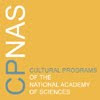From: Jill Scott
Date: Sat, 10 Mar 2007 19:38:14 +0100
Dear Oron,
Hi there, your program looks great and I will spread the infomation around.
However for this Symposium-I would be really interested in tackling an old discussion which we have had together further here:
----the value of "hands on" immersion in the lab context.
Beside having a look at the posts by the Andrew, the two Richards and Eugene, I have jotted down some notes for your reaction:
Immersion is revered in both art and science as one of the most valuable ways to transfer knowledge from educational facilitator to student. According to Sandra Caravita, the lab context in any discipline is so fundamental for learning and for the exchange of information that education is problematic without it. (1995). Reframing the Problem of Conceptual Change, Learning and Instruction, 4. p.89; Caravita, S.(1995). Immersion for artists in the science laboratory is an excellent starting point for new educational approaches to trans-disciplinary practice. Caravita also suggests that a scientist must actively build knowledge through the personal interpretation of her/his experience, but must share this experience not only with peers but also with 'outsiders'.
Why do you think that the artist can become this very valuable 'outsider'?
Generally, from our experience with the life sciences, the most beneficial way to start working with scientists is to assist them to collect the empirical evidence they need for their research. For example, in the artists-in-labs project at the Centre for Microscopy, artists were given a 'hands-on' education on tools like the Scanning Electron Microscope. The mastering of skills like these requires a very exact level of mimicry as part of the learning process.
Is important is it for the artist to really understand the methodologies and methods of science and why?
Looking forward….
Jill
to post a response, click on the "comment" button below
to return to the main page, go to www.visualcultureandbioscience.org
Subscribe to:
Post Comments (Atom)

No comments:
Post a Comment